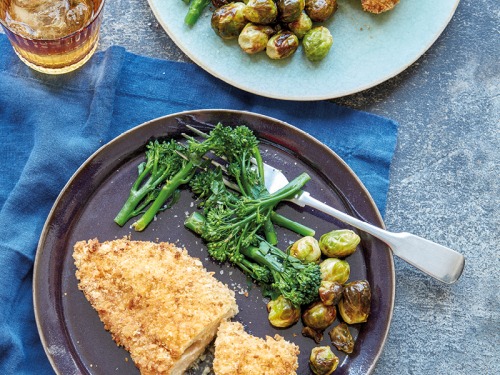Why We're Planting Our Pants
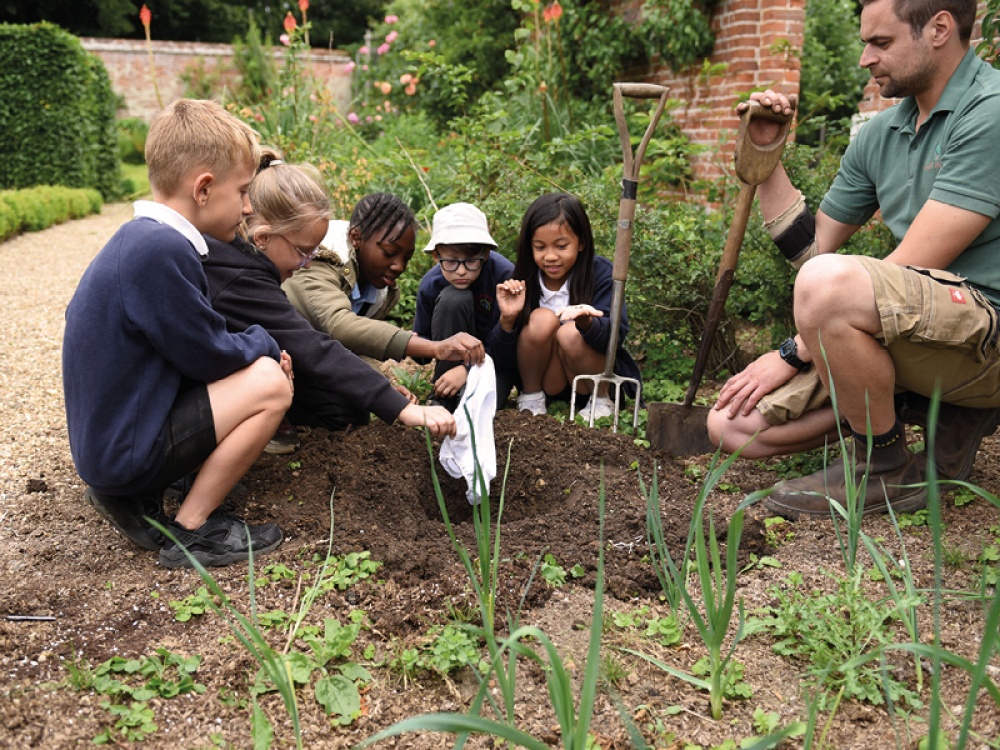
Planting your pants might sound like a silly idea, but there's a very serious reason for doing so - soil health
When it comes to soil health, it would be fair to say that Tom Fairfax has his ear to the ground.
‘I’m a mixed farmer in North Northumberland,’ Tom explains, referring to Mindrum Estate, the farm he grew up on before taking over himself. ‘We have sheep, cattle and some arable, and quite a lot of forestry. We were certified organic a few years ago and are very much driven by agro-ecology from the soil up.’
What is agro-ecology, you may well ask? Well, according to Tom, ‘it’s about creating conditions whereby the natural systems (which of course have evolved pretty efficiently over the last three and a half billion years) do a lot of the work for us.’
Tom’s pursuit of agro-ecological methods was prompted by necessity; the farm wasn’t thriving and roots of the problem lay in the ground.
‘The soil was getting thin,’ he says. ‘We were having to feed it with more artificial inputs to get the same outputs, we were beginning to lose biodiversity. When I was a child I can remember the harvests coming in and the peaks of grain in the trailer would be red with ladybirds. It suddenly struck me about five years ago I hadn’t seen that for 30 years. The ground felt hungry, if that makes sense?’
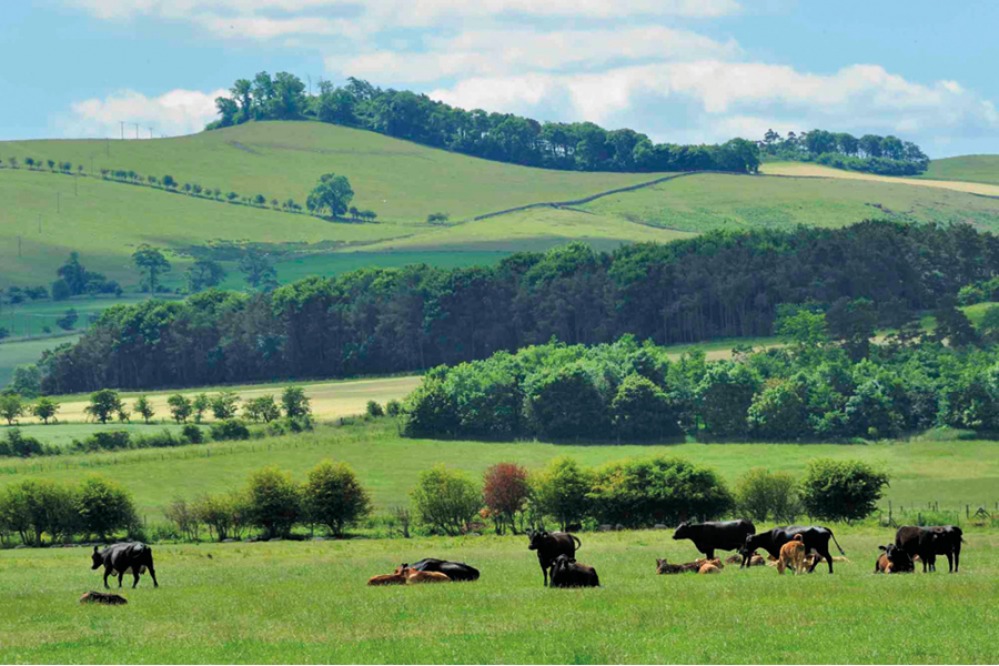
Tom says the deterioration of the soil on his farm is representative of a wider problem. ‘When my father started farming in the 1950s he had a ration card because the country had recently nearly run out of food,’ he explains. ‘And when people are hungry the farming system and government direction is all about putting cheap calories on the table, and lots of them. Really for the last 50–60 years the majority of global and national agriculture has focused on that.’ In order to do this, artificial methods like fertilisers were employed, which can disrupt natural ecology and lead to a loss of biodiversity both above and below ground.
The more he looked for solutions, the more it became apparent to Tom that there was not enough information out there. ‘There were lots of people talking about soil biology and soil health, but there were rather fewer people who were actually looking at it,’ he says. ‘So I started doing some training to enable myself to actually see it.’ In the case of Tom’s farm, this has not only meant moving away from the use of artificial fertilisers, but also monitoring the soil on a microscopic level to find the best alternatives.
Part of this has involved using his livestock as what he calls ‘ecological engineers’, to replace tractors and machinery. ‘Before we drill into a field, we use the sheep to eat the clover down,’ he offers as an example.
‘You can do it in a window box, you can do it in your garden,
you can do it in a schoolyard, you can do it in a pot’
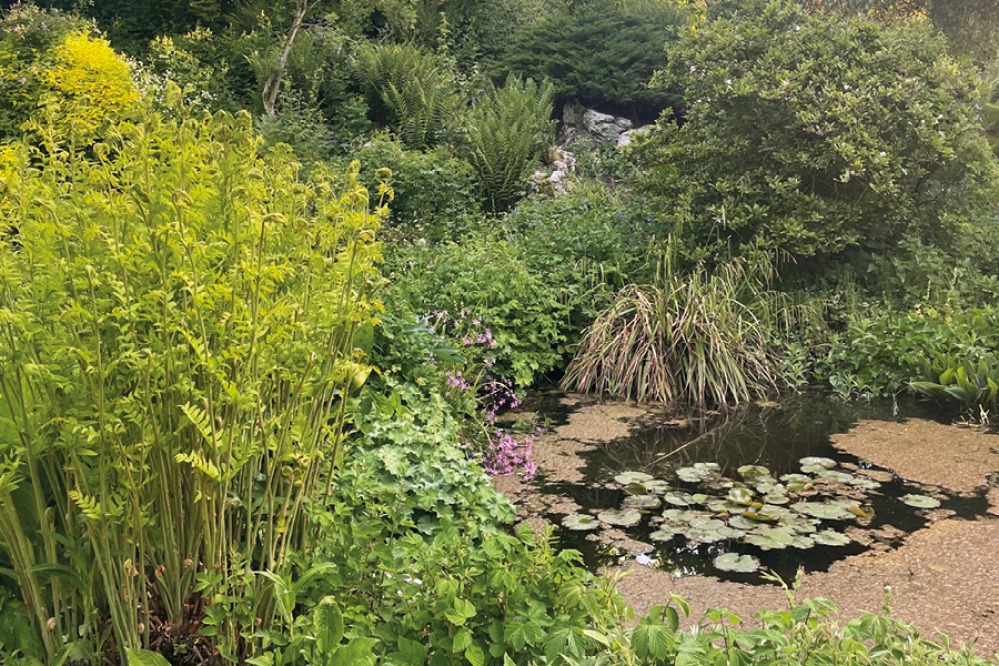
While most of us don’t share our back gardens with cattle, soil health is something that affects all of us, whether it’s through the food we eat or our own horticultural endeavours. Indeed, Tom uses the garden at Mindrum as a ‘test bed’ to develop strategies for his fields. ‘A good example is roses,’ he says. ‘We had a real black spot problem with our roses [but] if you do half your roses with compost tea and half without, you can see the difference.
‘The ones that don’t have compost tea are like Tweed salmon in November, they’re absolutely black,’ he says (for those, like myself, who don’t fish, this is bad). ‘Whereas the ones you put compost tea on, look like supermarket vegetables,’ he continues. ‘When you look at them in detail under a microscope, you’d find that they were covered in biology which is protecting them.’
If brewing compost teas sounds a bit technical, there are also some easier first steps that you can take to improve the health of your soil. This starts with keeping it covered. ‘If you have weeds in your rose bed, they are there because there’s open ground, so if you cover the ground, you can help the ground develop with either green mulch or even straw. Brown soil may look tidy but it’s really uncool. What it really does is it’s saying to nature: “I need you to do something here”. And nature’s pretty good at filling gaps, but it doesn’t necessarily fill them with what we want.’
Plant Your Pants
For the past few years, Tom has worked with the Country Trust to educate the next generation about the importance of looking after the health of our soil. One of the ways they do this is the Plant Your Pants Campaign (yes, you did read that correctly), an experiment to help gardeners of all ages determine the health of their soil.
As with any experiment, precision is key, and the pants you choose need to be cotton. From here, you simply bury the pants in any soil you would like to test and dig them up eight weeks later. If things have gone well, there won’t be much to dig up. ‘Things like earth worms don’t actually eat pants,’ Tom explains, ‘but the things that the earthworms eat, do eat pants. There’s a whole web of things living in the soil that are too small for us to see. If you’ve got good biology, the biology will eat the natural bits of the pants like cotton, but they can’t eat the rubber or the elastic, so when you dig up your pants two months later, if you’ve got nice healthy soil, all the bits that are delicious for the microbes will have been eaten and the bits that the microbes can’t eat will still be there. If, when you dig up your pants, you’ve just got a dirty pair of pants, then it means you’ve got pretty bad soil.’
The Country Trust invites participants to sign up to the campaign this spring, but don’t worry if you’ve missed the boat. ‘You can do it at any time of the year,’ says Tom. ‘You can do it in a window box, you can do it in your garden, you can do it in a schoolyard, you can do it in a pot.’

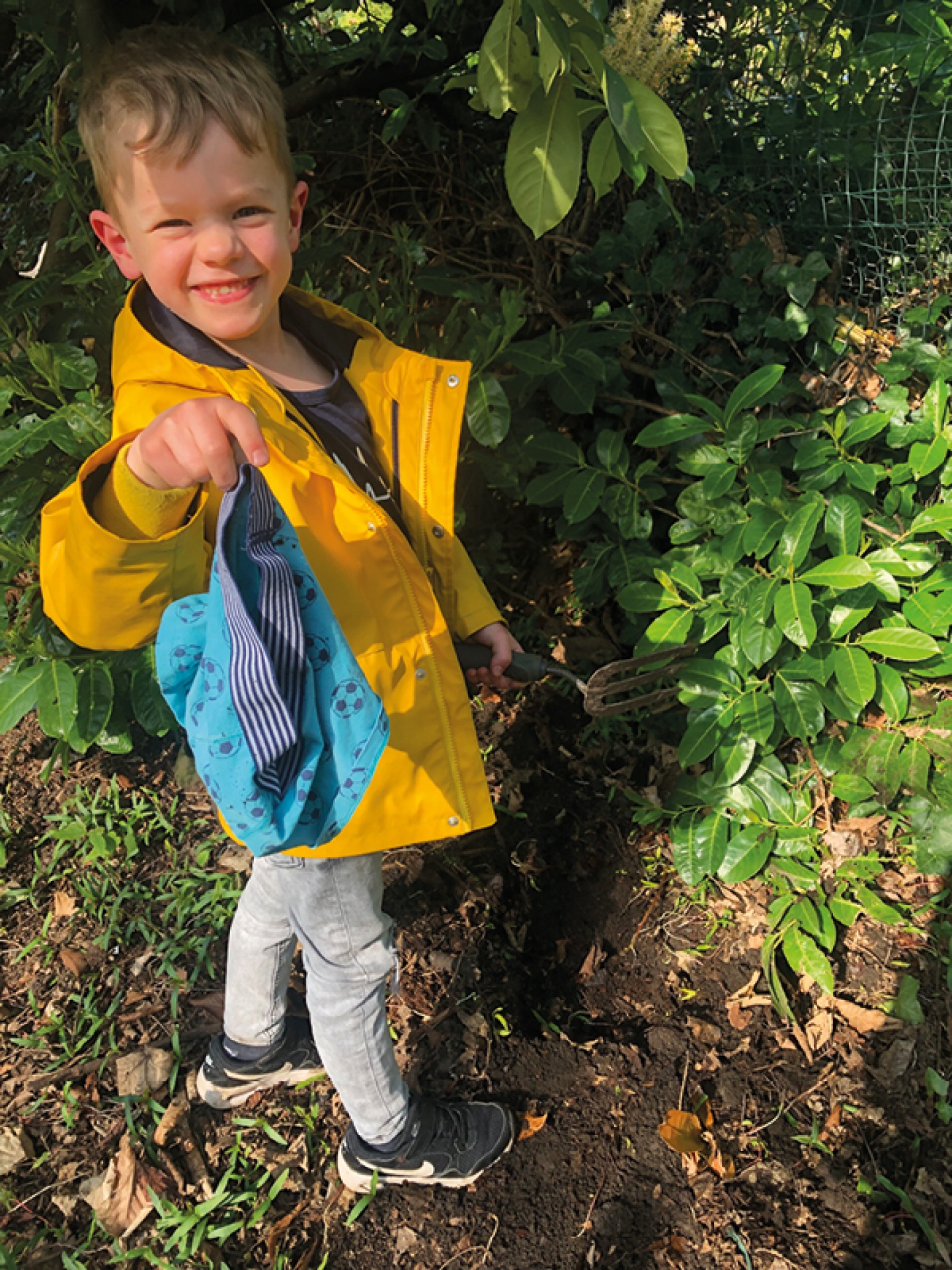
Underpinning the fun of the experiment is a serious mission to protect the health of our soil for future generations. ‘We, as a society, have become very used to being able to buy our food in a plastic box or plastic bag,’ Tom says. ‘Food doesn’t come from supermarkets, it comes from the ground. Food has to grow and if people don’t understand where the food comes from then they don’t value it, and if we don’t value the soil as a society then we will lose it.’
‘Something that my father used to do with me as a kid which I still do is to lie down on a bit of grassy ground and look at what’s in front of you, face down, 10 centimetres in front of your nose. For 10 seconds or so, all you can see is grass and then suddenly your focus changes and you can see everything that’s living in it. Once the kids see that they will start noticing things and then they start asking questions. And that’s what’s important.’
mindrumestate.co.uk
thecountrytrust.org.uk




